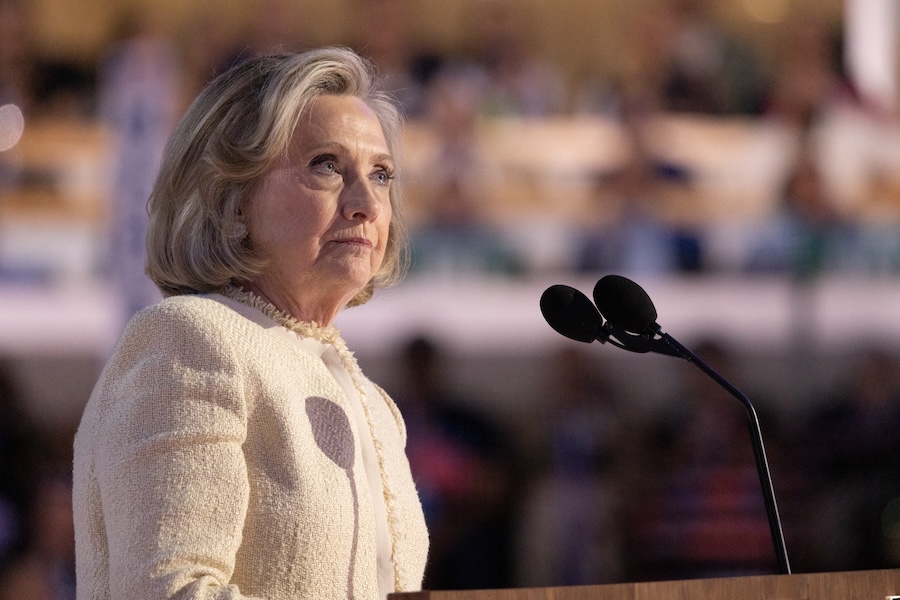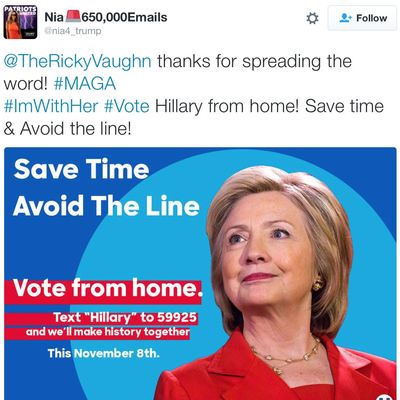Politics
Man Jailed For Meme About Hillary Clinton Sees His Conviction Overturned

A federal appeals court has thrown out the conviction of Douglass Mackey, the meme creator who was sentenced to seven months in prison for posting a satirical image ahead of the 2016 election. The unanimous decision, issued Tuesday by the 2nd U.S. Circuit Court of Appeals, marks a potential turning point in how the courts treat political speech online.
Mackey, who posted under the alias “Ricky Vaughn,” had been convicted in March 2023 of violating 18 U.S.C. § 241—also known as the Ku Klux Klan Act—for allegedly conspiring to deprive Americans of their right to vote. The Biden Justice Department claimed Mackey’s tweet, which jokingly encouraged Clinton supporters to “vote by text,” was a coordinated attempt to mislead voters.
But the appeals panel saw it differently. The three-judge panel—made up of both Republican and Democrat-appointed judges—found that prosecutors failed to prove Mackey had entered into a criminal conspiracy.
The court ruled that posting a false meme, even if politically charged or misleading, does not by itself amount to a federal conspiracy unless there is clear evidence of agreement or coordination with others to suppress votes. Prosecutors accused Mackey of working with others from September to November 2016 to circulate misleading memes online—one of which showed a woman standing in front of an “African Americans for Hillary” sign.
The tweet read, “Avoid the Line. Vote from Home. Text ‘Hillary’ to 59925.” Trial testimony revealed that roughly 5,000 people followed the meme’s instructions.

via Twitter
However, nearly all received an automated message clarifying that the posts weren’t affiliated with the Clinton campaign. The 2nd Circuit concluded there was “no evidence at trial that Mackey’s tweets tricked anyone into failing properly to vote.”
“BREAKING: THE SECOND CIRCUIT COURT OF APPEALS HAS THROWN OUT MY CONVICTION FOR LACK OF EVIDENCE,” he posted. “THE CASE HAS BEEN REMANDED TO THE DISTRICT COURT WITH ORDERS TO IMMEDIATELY DISMISS. HALLELUJAH!”
BREAKING: THE SECOND CIRCUIT COURT OF APPEALS HAS THROWN OUT MY CONVICTION FOR LACK OF EVIDENCE
THE CASE HAS BEEN REMANDED TO THE DISTRICT COURT WITH ORDERS TO IMMEDIATELY DISMISS
HALLELUJAH!
— Douglass Mackey (@DougMackeyCase) July 9, 2025
“Praise God. God is good,” he added in a string of celebratory posts. “UNANIMOUS DECISION by both Republican and Democrat judges. Now we sue.”
In a pinned message, Mackey also thanked his legal team and supporters: “I would like to thank God, thank my family, thank my beautiful wife, attorney Andrew Frisch, the incredible attorneys at Jones Day, and YOU—the friends who prayed and donated and spread the word since day one.”
His arrest in 2021—just days after former President Joe Biden’s inauguration—sparked controversy among conservatives, who viewed the case as an unprecedented attempt to criminalize political satire. Mackey’s tweet had gone viral in 2016 and was retweeted by thousands, though there was no evidence that anyone actually lost the right to vote because of it.
About 5,000 people interacted with the tweet, but nearly all received automated replies informing them the post was fake and unaffiliated with the Clinton campaign.
Supporters of free speech viewed the conviction as a dangerous precedent. Critics argued it could open the door to using 19th-century laws to punish online political expression. Mackey’s legal team framed the prosecution as politically motivated, pointing out that he was charged in a liberal district far from his Florida home.
Mackey, who now plans to sue the Department of Justice, is soliciting support through his website and a legal defense fund, stating that the fight isn’t over.
“I can finally get my guns back,” he joked.

